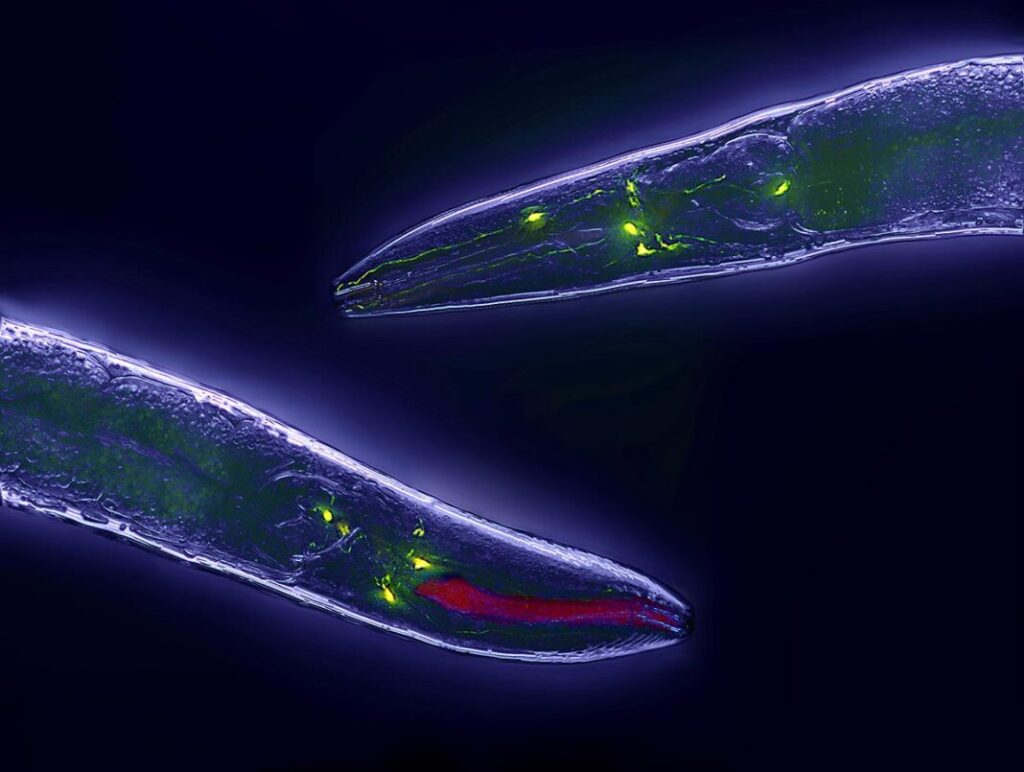
A recent study conducted by scientists at the Howard Hughes Medical Institute (HHMI) has unveiled mechanisms by which longevity traits are inherited in the roundworm C. elegans. Published in the journal Science, the research sheds light on how changes in parental lysosomes, which are crucial for longevity, are passed to offspring. The study was led by Dr. Meng Wang, a senior group leader at HHMI’s Janelia Research Campus.
Previous investigations from Wang’s laboratory revealed that overexpressing a specific enzyme in the lysosomes of C. elegans could extend their lifespan by as much as 60 percent. Surprisingly, the offspring of these modified worms, which did not carry the genetic alteration themselves, also exhibited longer lifespans. When these long-lived worms were bred with wild-type worms, the resulting offspring continued to show enhanced longevity, suggesting a mechanism for transgenerational inheritance of longevity traits.
The latest findings indicate that the key to this phenomenon lies in histones, which are proteins that help package DNA within cells. According to the study, changes in the lysosomes of C. elegans are transferred to reproductive cells through histone modifications. These modifications alter the epigenome of the worms, allowing the longevity information to be inherited without any changes to the underlying DNA sequence.
Dr. Wang commented on the significance of their discoveries: “You always think that your inheritance is in the nucleus, within the cell, but now we show that the histone can go from one place to another place. If that histone carries any modification, that means you are going to transfer the epigenetic information from one cell to another. It really provides a mechanism for understanding the transgenerational effect.”
The researchers identified a specific histone modification that was elevated in the long-lived worms compared to those with typical lifespans. Utilizing a combination of transcriptomics and imaging techniques, they discovered that alterations in lysosomal metabolism—activated during fasting—trigger a cascade of cellular processes. This chain of events increases the presence of a particular histone variant, which is subsequently transported to the reproductive cells via proteins. Once there, the histone modifications allow for the transfer of lysosomal information into the germline.
This research not only clarifies how longevity traits are inherited but also opens new avenues for understanding other inherited characteristics in C. elegans. For instance, the findings might help elucidate how parental malnutrition affects offspring or how epigenetic responses to environmental stressors are passed down through generations.
The implications of this study extend beyond basic biology, potentially influencing fields such as genetics and developmental biology. Understanding these mechanisms may pave the way for new insights into how traits, both beneficial and detrimental, are passed from one generation to the next in various organisms.







